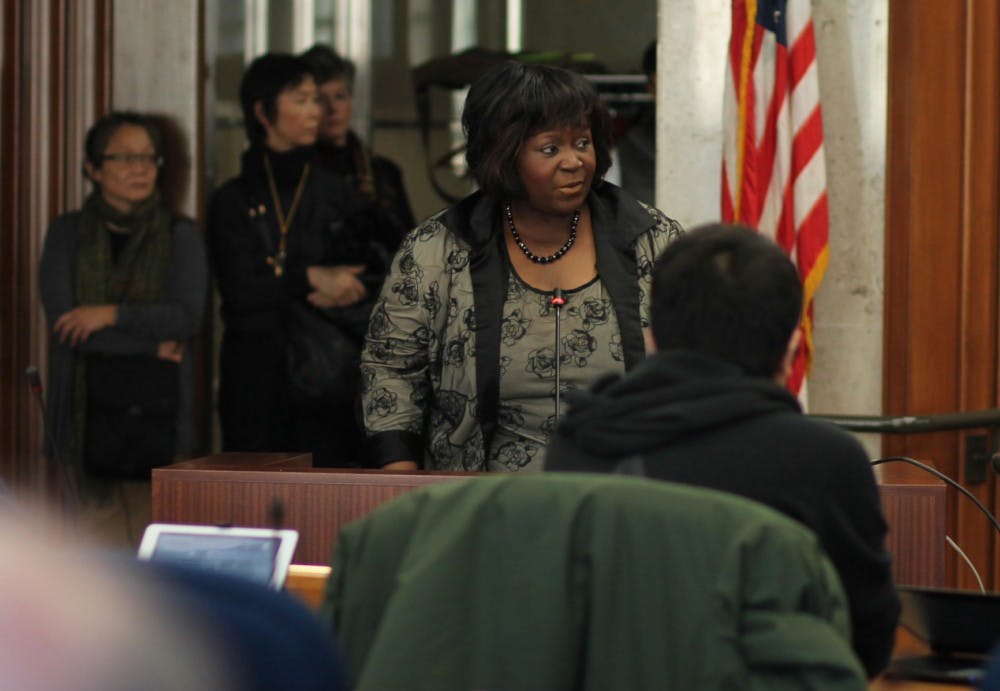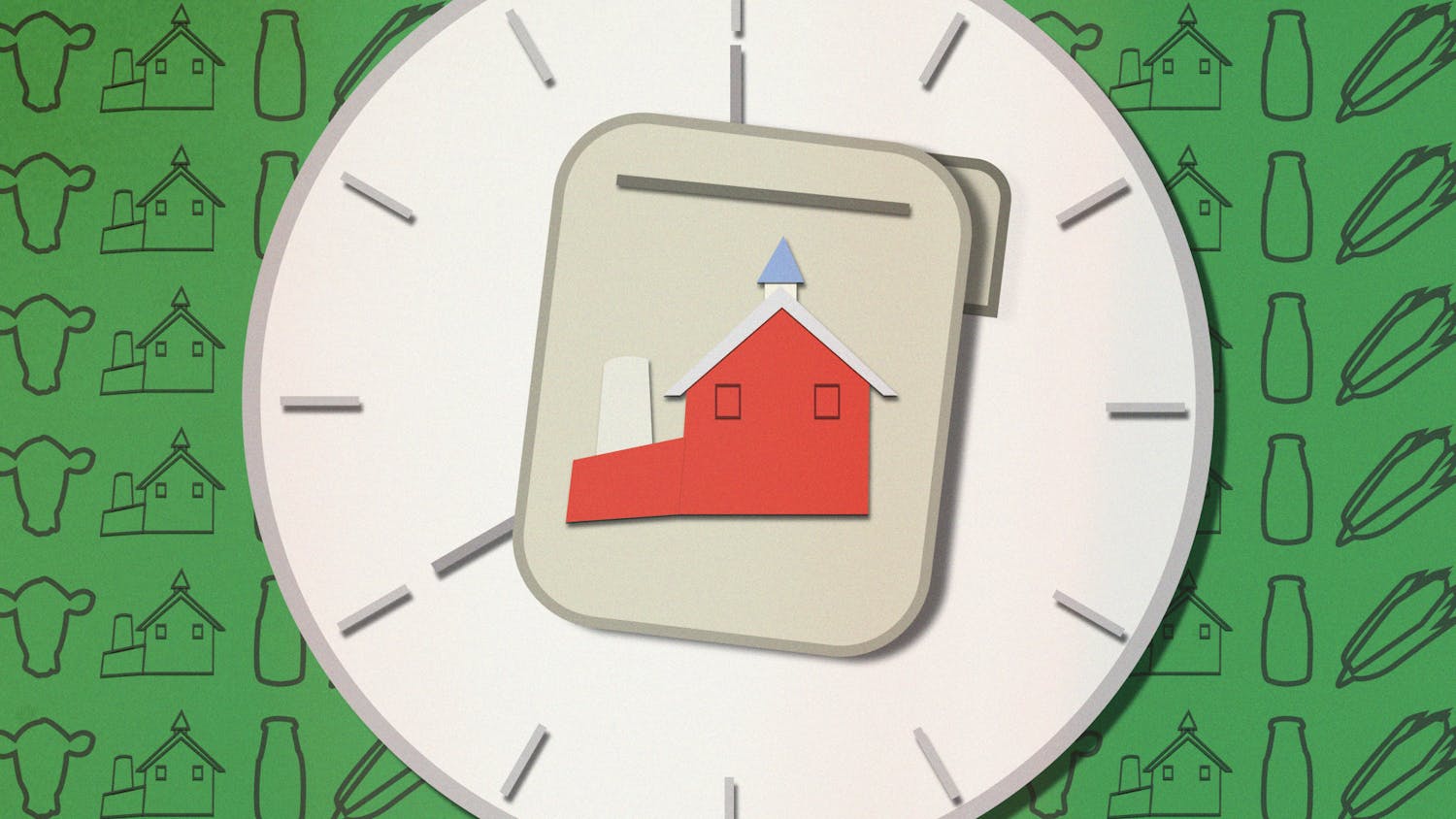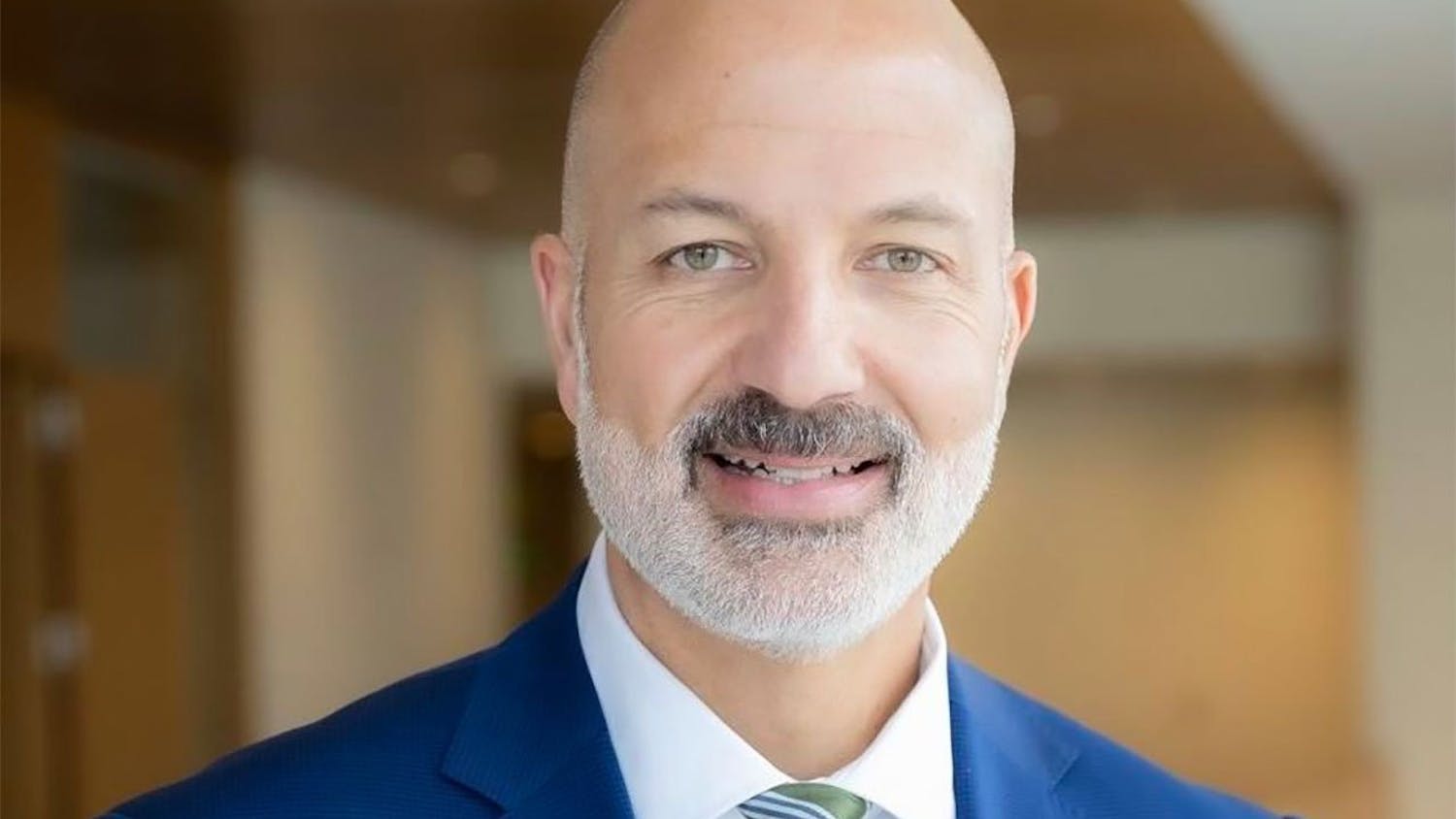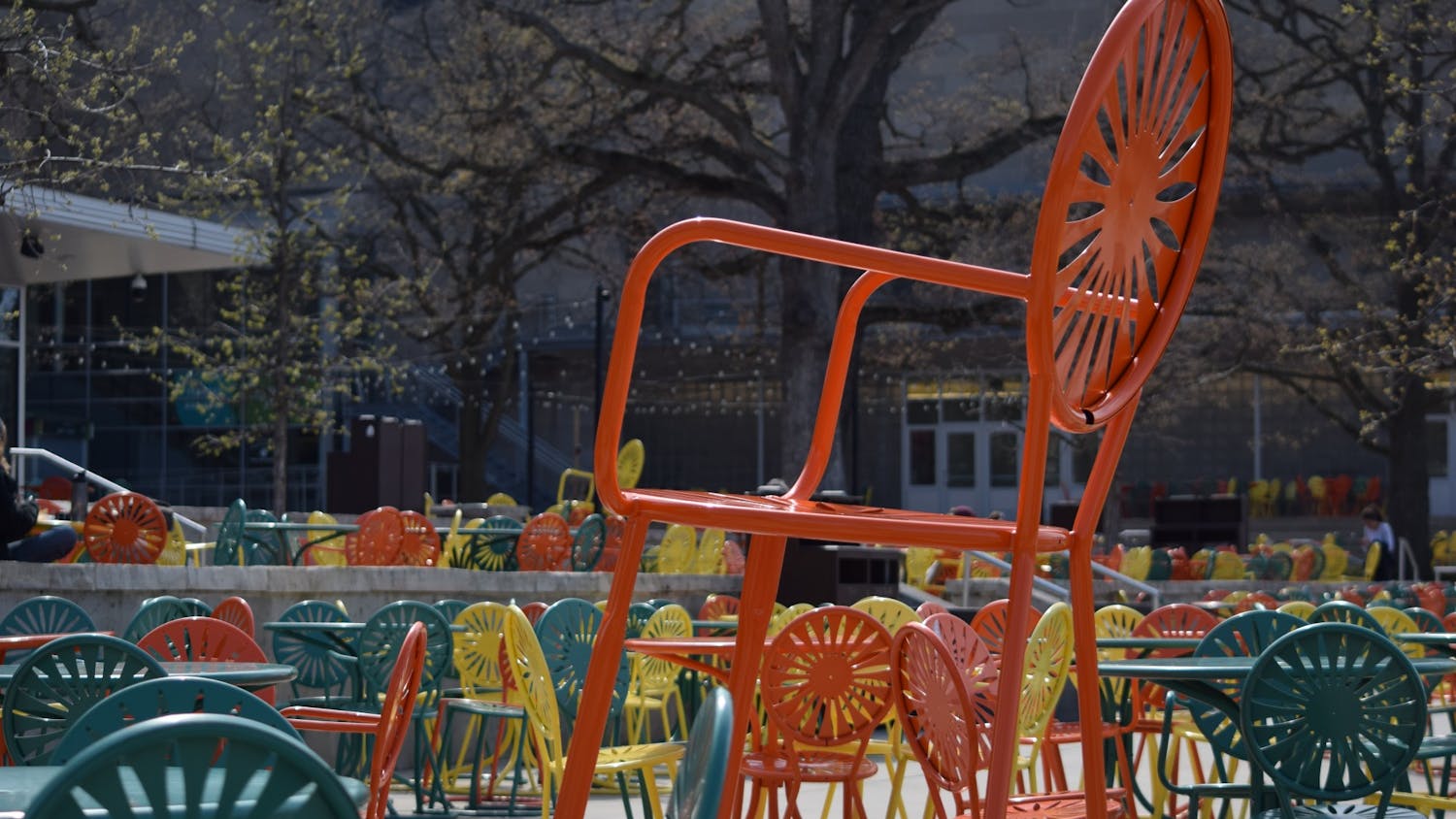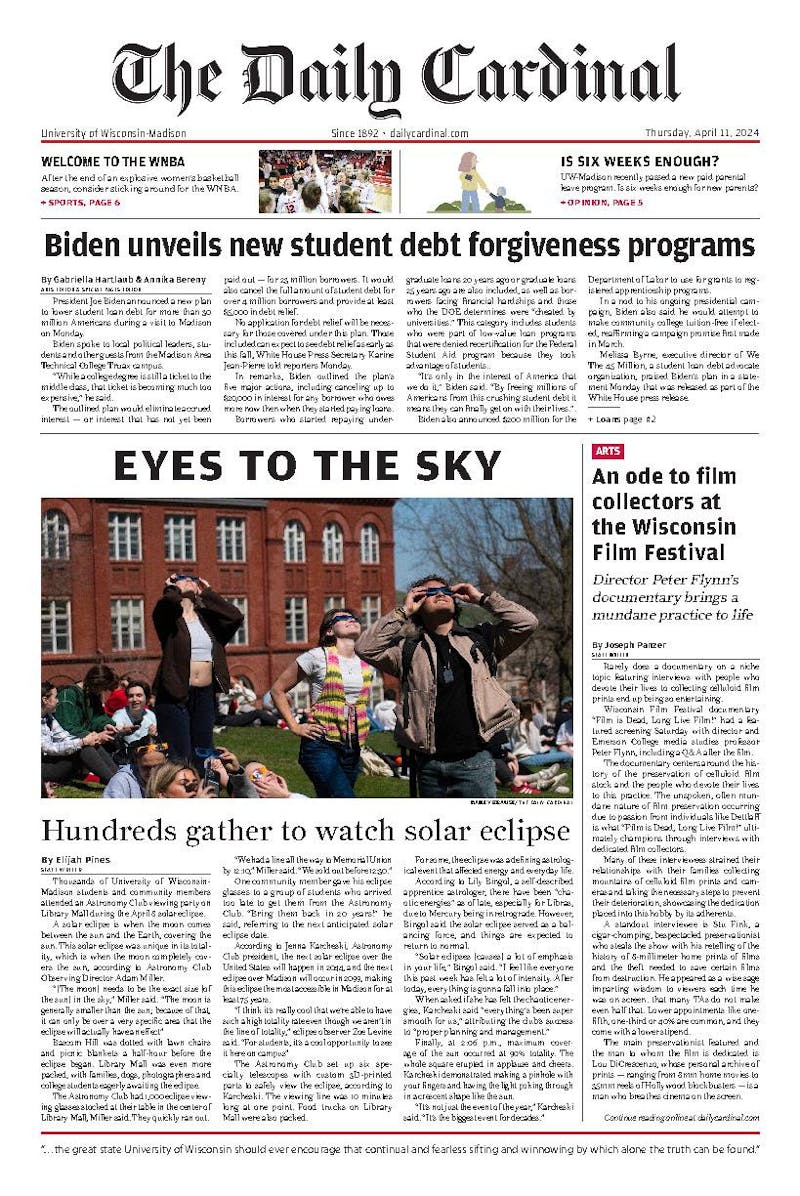Four days after Tony Robinson’s death, protestors of all ages congregated on the steps of City-County Building early Tuesday evening, spurred by a proposed Dane County incarceration study.
Unfurling a “Black Lives Matter” banner, black and white attendees holding the sign stood in silence as Young, Gifted and Black leaders Eric Upchurch and Matthew Braunginn addressed the gathered crowd, leading it in chanting “no justice, no peace,” and “all power to the people.”
“Building the people [and] not the jail is a real human concern,” Upchurch said. “We cannot afford to lose another Tony Robinson.”
Protesters then filled the Madison Public Protection and Judiciary Committee’s meeting, decrying a possible expansion of Dane County’s jail system.
Armed with signs and, in one case, a banjo, the number of protesters caused county officials to temporarily run out of registration slips for speakers giving testimony on the resolution, according to Public Protection and Judiciary Committee Chair Paul Rusk.
Proposed in Dane County Resolution 556, the study would explore racial disparity and mental health in the county’s jail system, as well as problems with solitary confinement and alternatives to incarceration.
Many of the protesters believe expansion of Dane County’s jails would perpetuate racial disparities in the Dane County’s justice system and divert money from programs that could address the roots of Madison’s racial issues.
“You have the authority and power to put into place practices and programs and studies that focus on diverting people from police contact,” Upchurch said. “If you do not do that and invest in jail and not community and root causes, then you go from foregoing the problem to perpetuating the problem.”
“What we need to do is look at the rest of the resolution and invest in our city, invest in our people [and] invest in this county. When we invest in people, we always get a return,” Braunginn said.
Many of the protesters commented on rumors of a new jail, a rumor that stems from a similar study that inspired a new jail proposal in 2014. Debate over that new jail was halted earlier this year, with officials citing public protests as the reason.
“If you build a jail, somebody will fill them,” said Ernestine Moss, a resident of Madison for 43 years. “We don’t need more jails. We need more schools, we need more early childhood education facilities and teachers, and we also need … educators and professionals that can help remedy the problem … not build the problem.”
However, according to Rusk, a new jail isn’t in the works.
“The proposal that we have … is basically to look at options for how to fix the [Dane County jail],” Rusk said. “I don’t think a new jail is going to happen.”
The committee is trying to address the issues protesters raised, Rusk said, including the mental health of inmates and cutting down on incarceration rates.
“We’ve heard you,” Rusk said. “We’re really trying to get it right [and] put processes in place to address all of this.”
Simultaneously one floor above, protesters also spoke at Dane County’s Health & Human Needs Committee meeting, voicing condemnation for “reactionary” measures aimed at fixing a flawed system.
"There has to be a way for people, especially policy makers, to think outside the box of a punitive system," said Nneka Akubeze. "There is another pathway to justice, and it has nothing to do with incarceration."
For community members, it was the context of Robinson’s death that detracted from local promises, as well as a recurring theme of Madison not being as progressive on racial disparity issues as officials would like to think.
“Madison isn’t an exception and we’ve never been an exception,” said activist Cristina Lor.
For ReVonda Bowen, who traveled from Atlanta to attend the event, what happened in Madison was felt nationally.
“Racism is not hereditary, racism is taught,” Bowen said.
Julie Spitzer contributed to this report.

